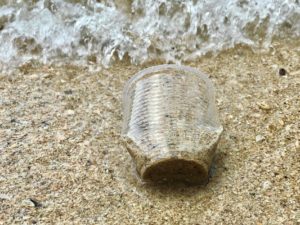
This may be a funny concept to wrap your mind around but bear with me down the rabbit hole a way. We live in an age in which instant gratification is a constant and YOLO is being shouted from the roof tops; do we look at the bigger picture? Do we play the long game? Are you creating a brighter and better tomorrow?
Often, with the mindset of instant gratification and YOLO, we don’t look at the bigger picture nor do we concern ourselves with the consequences. Humans are polluting and negatively impacting the environment. I often hear that “i’ll be dead by the time any negative impact is truly felt so why worry about it?” What about our kids, grandkids, and their grandkids? What about the future generations of humanity that inherit the issues we have created?
Try an exercise for me. Consider that you are immortal and will live forever. What kind of world would you like to live in 100 or even 1000 years down the road? What will the consequences of yours and humanities actions be and how will they impact that world? What can you do to influence positive change?
“Runoff from human activity comes from two places: point sources and nonpoint sources. Point source pollution is any source that empties directly into a waterway. This might include a pipe from specific sewage treatment plant, factory, or even a home. Regulations determine what type of runoff, and how much, industries are allowed to release. These regulations vary by region, state, and nation.
Nonpoint source pollution is any source where runoff does not go directly into a waterway. Nonpoint sources of runoff can be large urban, suburban, or rural areas. In these areas, rainwater and irrigation wash chemicals into local streams. Runoff from nonpoint sources includes lawn fertilizer, car exhaust, and even spilled gasoline from a car. Farms are a huge nonpoint source of runoff, as rainwater and irrigation drain fertilizers and pesticides into bodies of water (National Geopraphic).”
Did you know the one of the world’s largest dead zones is in the Gulf of Mexico? 41% of the United States drainage flows into the Mississippi River which flows into the Gulf of Mexico. The runoff is due to human activity, both agriculture and urbanization. The runoff leads to a growth explosion in algae which sequentially dies off and sinks to the bottom. This process leads to low oxygen levels (hypoxic zone) that cannot support marine life. Unless we begin thinking with an immortal mindset, this is only going to continue to get worse.
Microplastics are now found in most fish. They’re also in the air we breathe, the water we drink and so much more. Of all the plastic humans have created since 1950, only 10% has been recycled. The research into microplastics is still fresh and we don’t yet know the long-term effects. Do you think it is beneficial? Or harmful?
“Think big picture. Individuals can take actions to limit their plastic exposure, Myers says, but large-scale solutions will require reducing the amount of plastic used overall. The experts we spoke with say that consumers should opt for products packaged in glass instead of plastic, use reusable nonplastic containers whenever possible and support policies limiting the use of single-use plastic (Washington post).”
However, do not let me mislead you. The Immortal Mindset does not only apply to the negative actions of yesterday. The Immortal Mindset can be applied to so many things and have an immense beneficial influence.
It’s a small tweak in or mindset but imagine applying the immortal mindset to something that may seems trivial that we do every day, decision making. When thinking about a decision, look down the road ten or so years and ask yourself how it will impact you? Will the future you benefit from the decision your making? That could literally be anything! What you’re eating, to exercise or not, to save your money or to spend it on something; if you’re spending your money on something, will you benefit from doing so?
With the immortal mindset, you won’t need to stress at all. Things will work themselves out and you have the time to not worry about it. You’ll teat others using the golden rule (do unto others that which you would like done unto yourself) because as you live forever, so will everyone else.
What are your thoughts on the immortal mindset? Can you begin applying it today? Will you benefit from applying the immortal mindset? Will others benefit from you applying the immortal mindset? How else may we use it? What else may we apply it to? The opportunities are limitless! I’m excited to see and hear your feedback.
Keep Smiling.

Recent Comments